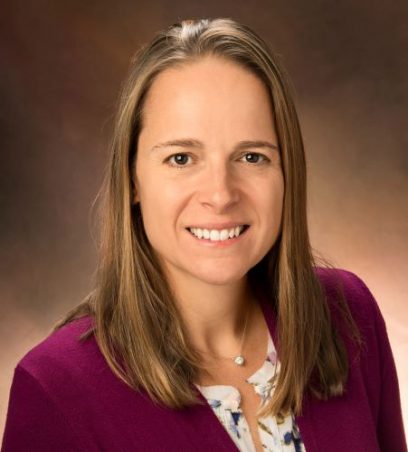A multidisciplinary group of researchers from Children’s Hospital of Philadelphia (CHOP) and Penn Medicine have received a $50 million grant from the National Institutes of Health (NIH) to study the impact of environmental influences on pregnancy and children’s health. The research program is part of the NIH’s Environmental influences on Child Health Outcomes (ECHO) Program, which funds research to uncover how environmental exposures during preconception, pregnancy and early life affect children’s long-term health.
“We are thrilled to have been chosen as an ECHO Cohort Study Site and for the opportunity to contribute to this important project, which will improve our understanding of the ways the local environment affects our children’s health,” said Heather Burris, MD, MPH, an attending neonatologist at CHOP, PRCCEH member and co-lead investigator of the Penn-CHOP study site. “We know that communities are not equally exposed to environmental toxicants, and we also know that health inequities and disparities are an ongoing public health problem. This project will help us shed light on the extent to which the health inequities we see in our patient population are related to neighborhood environmental exposures.”
Prior research has shown that Black infants are twice as likely to die compared to white infants, primarily due to adverse pregnancy outcomes like preterm birth. Although extensive efforts have been taken to prevent preterm birth and improve child health, inequities across the population persist, and researchers still do not fully understand how and to what extent specific factors in the environment – both at the neighborhood level and the individual level – contribute to these ongoing problems.
To fill this gap, the CHOP and Penn researchers will recruit up to 2,500 pregnant people, partners, and offspring over a period of three years into the ECHO Cohort, a nationwide pool of research subjects managed by institutions across the country. The aim across the ECHO cohort is to establish a group of pregnant people and children from different types of neighborhoods and communities, which will allow investigators to explore questions about the impact of early environmental exposures on child health at a large and diverse scale.
“At Penn and CHOP, we serve a diverse population including a group of patients who are underrepresented in other pregnancy and pediatric cohorts in the United States: patients who are Black and insured by Medicaid,” said co-lead investigator Sunni L. Mumford, PhD, co-director of the Women’s Health Clinical Research Center, PRCCEH member and deputy director of Epidemiology in the Perelman School of Medicine at the University of Pennsylvania. “It is so important to understand how environmental toxicants and beneficial exposures shape the health of Philadelphia’s children. By contributing to the national ECHO Cohort, our research will benefit not only our institutional and neighborhood communities but also communities across the country.”
Over the seven-year period of the grant, the researchers plan to evaluate the impact on maternal-child health of specific “macroenvironmental” factors – that is, factors related to the neighborhood environment, from those that promote health, like greenspace and walkability, to those that detract from health, like pollution, neighborhood violence and extreme temperatures. Their aim is to identify modifiable factors that influence the risks of abnormal fetal growth, preterm birth, obesity, asthma, and neurodevelopmental delays, as well as whether modifying these factors may improve overall racial health disparities.
The researchers also plan to identify beneficial “microenvironmental” factors – the individual behaviors of a pregnant person, such as diet, physical activity, and sleep, which could potentially close the gap in child health outcomes. Although prior research has looked at the health impacts of macro- and microenvironmental factors individually, no studies have explored the interplay between the two and the impact they could have on maternal-child health.
“The culture of clinical research, excellent scientific environment, and diverse population makes Penn and CHOP the ideal place to innovate in the field of maternal-child health equity,” said Sara B. DeMauro, MD, MSCE, an attending neonatologist at CHOP and co-lead investigator of the Penn-CHOP study site. “The Penn-CHOP ECHO Study Site now joins the Philadelphia Regional Center for Children’s Environmental Health, the Penn Center of Excellence in Environmental Toxicology (CEET), and the CHOP Center for Health Equity in leading the way to improve children’s health, support environmental justice, and reduce health disparities.”
Learn more about the ECHO Program here.

